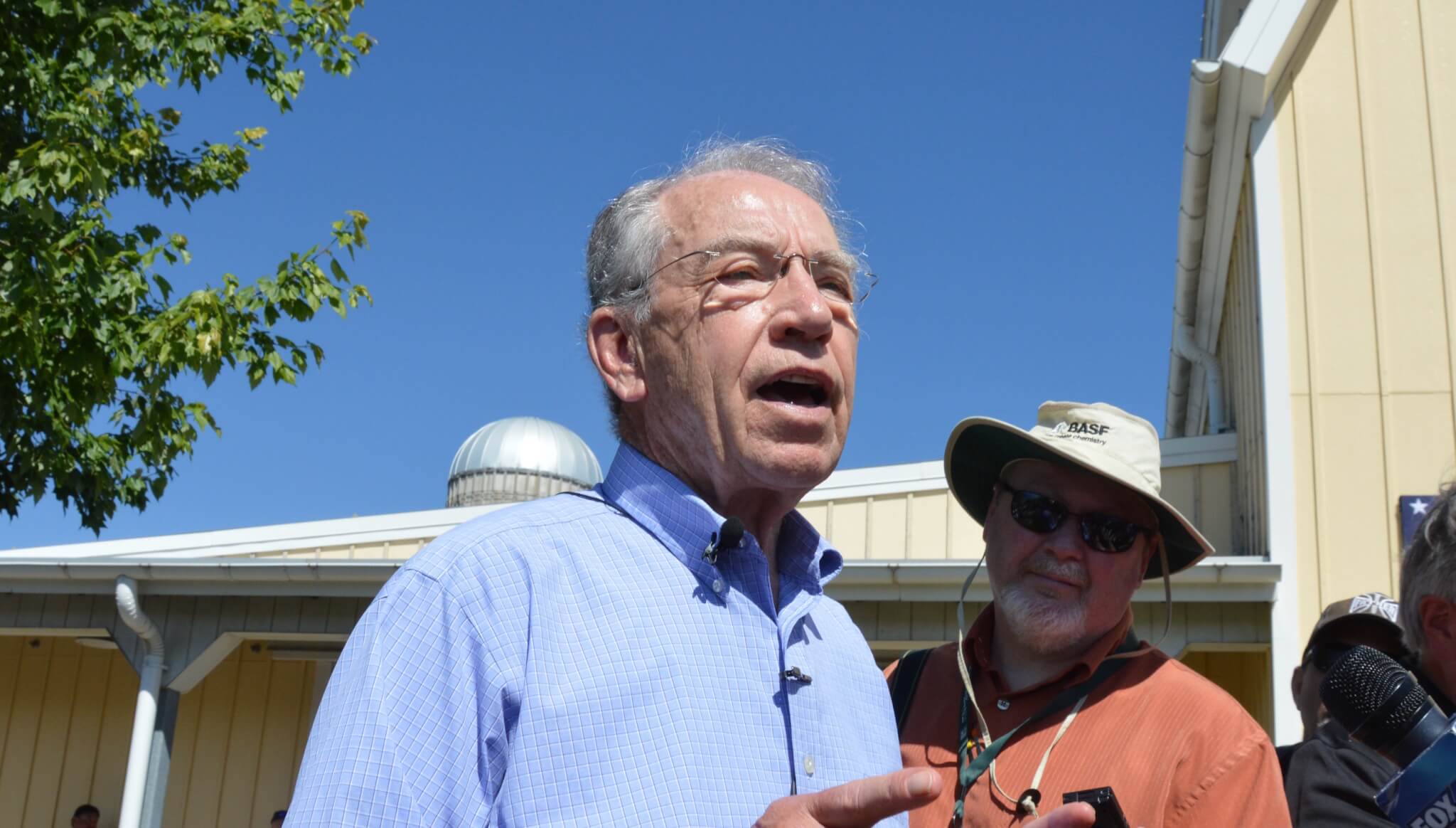
At stake is health care access for millions, including people with pre-existing conditions. Surely these would be at the top of any list of concerns about Cassidy-Graham.
Senator Chuck Grassley of Iowa has made the point himself: The Cassidy-Graham bill to repeal the Affordable Care Act (ACA) has many deficiencies. “I could maybe give you 10 reasons why this bill should not be considered,” he told Iowa reporters.
So, let’s look at some of the reasons, on the merits, why people might have concerns about Cassidy-Graham.
- People with pre-existing conditions would lose access to health care. Protection of these people assured now under the ACA would be left to state decisions, with states already cash-strapped.
- Many who became eligible for coverage through the Medicaid expansion of the ACA would lose it. In Iowa, about 150,000 people gained coverage by this expansion.
- It would change Medicaid expansion to a block-grant program that provides states no flexibility to deal with recessions or prescription drug price increases.
- Medicaid for seniors, people with disabilities, and families with children would be capped on a per-person basis. Anything higher would be left to the states to provide. There is neither any assurance states would want to do that, or even be financially able to do so.
- Iowa would be marched to a $1.8 billion cliff in 2027 under this bill, with federal support dropping sharply. For context, that is the equivalent of about one-fourth of the current state budget.
- Millions would lose insurance coverage. While we’re still waiting for the estimate from the Congressional Budget Office, past repeal proposals show this. And, since this bill offers nothing beyond 2027 for the Medicaid expansion, via block grant or otherwise, the prospect of 32 million people losing coverage (as demonstrated in estimates in previous ACA repeal legislation) is very real.
The data shows that Iowa’s uninsured population has dropped with the advent of the ACA, or Obamacare. Census data show uninsurance in Iowa dropped by nearly half in just three years, by about 116,000 — from 8.1 percent uninsured in 2013 to 4.3 percent in 2016.

So, this is a good start on why Iowans might be concerned about Cassidy-Graham — a last-ditch effort to rush into law radical changes in the way millions nationally and over 100,000 in Iowa gained access to health care in just three years.
We invite Senator Grassley to add to the list and get us to the full 10 reasons he suggested that might cause concerns about this bill.
Or better yet, maybe together in a deliberative process that involves everyone, we can come up with a list of 10 things that any health care policy should address.
Surely the list would include insuring more people, assuring more with practical access to health care when they need it, improving public health and reducing costs. We invite Senator Grassley to that discussion.
by Mike Owen
Iowa Public Policy Project
Posted 9/26/17

Big corporations are suing to block Biden’s efforts to lower costs
From the cost of medication to education to everyday expenses, the Biden administration has passed several laws and implemented many federal rules...

Iowa Republicans make outlawing gay marriage key 2024 campaign priority
Iowa Republicans have made outlawing gay marriage a key goal in their 2024 party platform. During the Iowa GOP’s 2024 state convention on Saturday,...

Department of Justice says Iowa immigration law violates US Constitution
If Iowa doesn’t suspend the enforcement of its new immigration law by May 7, the state could face a federal lawsuit, according to the Des Moines...

Rushing: Iowa State president said the quiet part out loud
I want to thank Iowa State University President Wendy Wintersteen for doing us all a favor by finally saying the quiet part out loud: all the...

Iowa sets aside almost $180 million for year two of voucher program
Iowa has committed nearly $180 million in taxpayer funds to support private school tuition in the 2024-25 school year, which is almost $50 million...

Kalbach: Immediate action needed on corporate ag pollution
Iowa agriculture has undergone substantial changes over the past 40 years. We see it all around us. Rather than crops and livestock being raised on...




